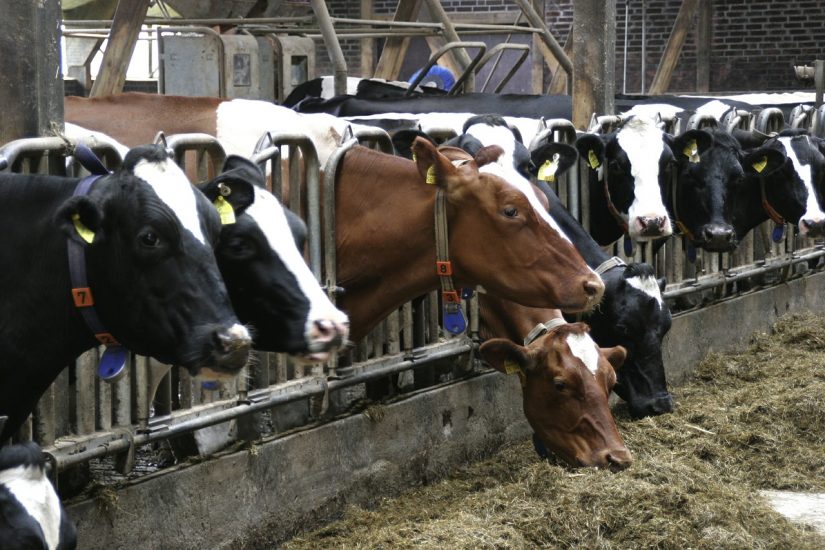Probiotics for a Great Health & Happy Mood (II)
How start enjoying your probiotic benefits? Beware of these beneficial bacteria slayers:
No matter how well you eat, or how diligent you are about supplementing with a high-quality probiotic supplement, you must be equally aware of the factors that can put your microflora at risk:
- You’re taking antibiotics
If you must take an antibiotic, don’t stop taking your probiotic! Take your probiotic supplement either a few hours before or after your antibiotic, and continue after your antibiotic treatment course for optimal protection.
It’s a well-established fact that antibiotics indiscriminately kill bacteria, both good and bad. If you take a probiotic at the same time, you can help restore your beneficial microbes faster.
- You’re using heartburn pills
A recent study shows that if you are taking the widely available over-the-counter or prescription proton pump inhibitors (PPIs) for heartburn, you may be putting your gut flora at risk.
- You eat factory-farmed meats and dairy
Be aware that factory-farmed meats and dairy also contain antibiotics, although in much smaller doses. About 80 percent of all antibiotics sold in the U.S. are used to fatten and prevent disease in non-organically raised food animals and dairy.
Unless you are buying organic grass-fed meats and dairy, you are likely consuming minute doses of antibiotics with every meal!
In addition to the antibiotics you receive, with factory-farmed meats and dairy, you’re also likely to consume traces of pesticides and herbicides, which can also negatively impact your gut flora. Livestock and dairy are typically fed genetically engineered grains.
- You’re drinking chlorinated or fluoridated water
The chlorine and fluoride that remain in drinking water that is chlorinated or fluoridated harm your beneficial gut bacteria.
- You’re eating processed and sugary foods and beverages
Sugar and processed foods encourage the growth of undesirable bacteria in your gastrointestinal tract and upset the balance of good-to-bad microbes.
In one study, after 10 days on a fast food diet, a subject’s gut microbes were “devastated.” Plus, he lost about 40 percent of the diversity of his bacteria species.
Obviously, the less sugar and processed foods you eat, the better. The more you eat, the more probiotics your body needs!
The Health Benefits of Probiotics
Probiotics, or beneficial gut microbes, influence many functions in your body. In addition to your immune health, researchers have found they affect your body weight, energy and nutrition, and your brain, both psychologically and neurologically. Your microflora impacts the expression of your genes, too, which can have a powerful effect on your health.
Some of the most important benefits of probiotics include:
- Digestive Health
The first major benefit of probiotics is as a promoter of good digestive health. According to a meta-analysis conducted by Dalhousie University in Nova Scotia, “Probiotics are generally beneficial in treatment and prevention of gastrointestinal diseases… When choosing to use probiotics in the treatment or prevention of gastrointestinal disease, the type of disease and probiotic species (strain) are the most important factors to take into consideration.”
Eating foods rich in good bacteria and using probiotic supplements may help to provide protection from inflammatory bowel diseases, including ulcerative colitis and Crohn’s disease. The evidence is stronger, however, for an improvement in ulcerative colitis, while Crohn’s disease may not benefit as greatly.
Large bodies of evidence suggest that probiotics are effective against several forms of diarrhea, including antibiotic-associated diarrhea, acute diarrhea, traveler’s diarrhea and other associated diarrhea symptoms.
Probiotics have also been found in meta-analyses to reduce the pain and severity of IBS symptoms, aid in the eradication of H. Pylori and treat pouchitis, a condition that occurs after the surgical removal of the large intestine and rectum.
- Healthy immune function
Did you know that your intestinal lining, or mucosal barrier, is about the size of a tennis court? Over 300 square meters in size, that’s a lot of territory for beneficial bacteria to patrol and support health!
Your good bacteria play a vital role in the development and maintenance of this mucosal immune system in your gut. They compete with the less-friendly microbes for both food and attachment sites on the receptor cells. As long as you have a healthy amount of good microbes, they’re usually able to prevail.
At home in your gut, your beneficial microbes partner up with your immune cells to help maintain your health in many different ways. Supplementing with probiotics may even help protect against the additional stressors on your immune health involved with strenuous athletic training.
Probiotics also support your normal healthy response to allergens. Beneficial bacteria train your immune system to distinguish between non-harmful antigens and undesirable antigens and to respond in a normal, appropriate way.
- Psychological and emotional health support
Many people are also surprised to learn that their guts are essentially their second brains. Proof of this can be found in the fact that your gut produces more of the mood-influencing neurotransmitter serotonin than your brain does.
Studies show probiotics can benefit the communications within your gut-brain axis. You have two nervous systems, one in your brain and spinal cord, and another in your gastrointestinal tract. Made from the same type of tissue, they are connected to each other via your vagus nerve, which is the primary route for information sharing between your gut and your brain.
Because of this profound interrelationship, whenever you’re dealing with any type of learning disability or neurological or psychiatric concern, I suggest you look closely at your gut health. Sometimes, supporting your emotional and psychological health can be as simple as healing and sealing your gut lining.
Your diet is indeed linked to your mental health!
- Immunity Boost and Decrease in Inflammation
Both probiotics and prebiotics are a continuing topic of research regarding immunity. When used in conjunction, scientists refer to them collectively as synbiotics. One 2015 review on the subject stated, “We suggest that LAB and Bifidobacteria and novel strains [of probiotics] might be an additional or supplementary therapy and may have potential for preventing wide scope of immunity-related diseases due anti-inflammatory effect.”
Because chronic inflammation is at the root of many diseases and health conditions, the fact that probiotics exert this effect in the gut, where 80 percent of the immune system lies, is crucial. The immune-boosting benefits of probiotics seem to be particularly helpful for the quality of life of seniors. Probiotics containing Bifidobacteria might even be a helpful protection against the common cold or flu.
Currently, research is being undertaken to test whether probiotics can “reduce inflammation and improve gut immune health in HIV-positive individuals” who haven’t yet undergone treatment.








